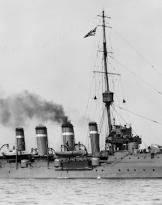The battle of Farsalus is certainly one of the topical moments of European and world history, being the icon of both military and political triumph of Gaius Julius Caesar, then future Dictator of Rome, on the republican forces led by Pompey. The assumptions of the clash did not bode well for Caesar: Pompey boasted a higher number of victories against various Asian populations and against pirates, which were so numerous that he claimed a triumph. Pompey was also supported by the Roman Senate, since he was seen as more easily maneuvered politically by it. Furthermore, although the Republican forces withdrew from Italy, they had won a small military victory in Durazzo against the Cesarean troops, managing to slow down the advance of the Dictator in the Balkan peninsula. Therefore, the Republic's troops also enjoyed greater morale due to the previous victory. In fact, the General Staff of Pompey on the eve of the battle of Pharsalus was already preparing to distribute the institutional positions and to prepare political plans to organize the post-defeated Republic of Caesar.
Julius Caesar, for his part, boasted fewer troops than his opponent (8 legions, while Pompeo 12) but far more prepared, having faced numerous military campaigns in the Gauls, across the Rhine, in Britain, in Iberia and finally in Italy. Moreover, he enjoyed popular support both in the western provinces (where he had exercised the mandate of proconsul) and in Italy. After Durazzo he had prepared a rather risky strategy to defeat the republican remnants, which however was the only one possible, given both his condition of numerical inferiority and the greater experience of his legionaries. Caesar had a further advantage: one of his former lieutenants, Tito Labieno, after the Gallia campaign and just before crossing the Rubicon, had passed into the Republican ranks taking the command of the Pompeian cavalry. The knowledge of Labieno's tactics allowed Caesar to be able to foresee his moves and therefore to prepare countermeasures. The main tactic of Labienus was to bypass the enemy troops on the flank and then attack them in the center. This tactic was possible because at the time military commanders tended to deploy troops on a long line to form three sides. In the center they lined up the bulk of the troops, the infantry cohorts and on the sides the cavalry units.
The battle was prepared by Caesar down to the smallest detail: he deployed the 10th legion on the right, the VIII and IX on the left (under the command of Marco Antonio) and finally the other legions were positioned in the center, except for some cohorts placed as reserve behind the battle array, which according to the commander of the rebel forces would have been useful during the subsequent offensive unleashed after the defeat of the Republican cavalry. And so it was. In fact, the troops led by Labieno attacked on the right side, succeeding in initially breaking down the line-up of the Caesarians, but Cesare, in command of the reserve, encircled the opposing cavalry and forced it to retreat; in the meantime the Cesarean legions present on the left side assaulted the center of the opposing camp, which had not moved by order of Pompey, who was waiting for the opposing troops to tire during the charge, causing carnage. After Labieno's retreat, Caesar gathered his troops and launched a final offensive that overwhelmed the republican lines, allowing victory. The Pompeian General Staff escaped from the battlefield by sheltering in Egypt (with the exception of Lucius Domitius Enobarbus, who was killed during the retreat).
The sources are conflicting on the losses suffered by both sides: some support 15.000 men for the Pompeian and 200 troops for Cesare, others support 10.000 for the Republicans and 1.000 for the Caesarian rebels. Whatever the figures, the battle was a complete victory for Caesar. Winning at Pharsalus determined, in addition to the celebration of triumph, the end of the Republic and the proclamation a Dictator for Caesar, who was also crowned by the presence of the commander of the rebel Gallic troops, Vercingetorix, in a prisoner condition (during the triumph, Roman prisoners were not exposed to avoid disturbing the people). Pompey was assassinated in Egypt, it seems from Ptolemy, then pharaoh of Egypt and brother of Cleopatra, which paved the way for the successive wars fought to eliminate the last republican resistance in Africa, Asia and Spain.
(photo: Caliga10's wife)












